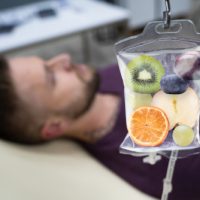 Total Parenteral Nutrition (TPN) is a medical technique used to provide essential nutrients to patients who are unable to obtain adequate nutrition through oral or enteral means. TPN solutions consist of various components that are crucial for maintaining patients’ nutritional balance and supporting their recovery. In this blog, we will break down the different components of TPN solutions, including macronutrients, micronutrients, vitamins, and trace elements, and highlight their importance in patient nutrition.
Total Parenteral Nutrition (TPN) is a medical technique used to provide essential nutrients to patients who are unable to obtain adequate nutrition through oral or enteral means. TPN solutions consist of various components that are crucial for maintaining patients’ nutritional balance and supporting their recovery. In this blog, we will break down the different components of TPN solutions, including macronutrients, micronutrients, vitamins, and trace elements, and highlight their importance in patient nutrition.
Macronutrients:
Macronutrients are essential nutrients required in relatively large quantities to support the body’s energy and metabolic needs. In TPN solutions, macronutrients typically include carbohydrates, proteins, and lipids. Carbohydrates, usually in the form of dextrose, provide a source of readily available energy for the body. Proteins, typically in the form of amino acids, are essential for tissue repair and the synthesis of enzymes and hormones. Lipids, such as soybean or olive oil-derived lipids, are a concentrated source of calories and provide essential fatty acids that aid in cell function and hormone production.
Micronutrients:
Micronutrients are essential nutrients required in smaller quantities to support various physiological and biochemical processes in the body. TPN solutions commonly contain electrolytes, such as sodium, potassium, and magnesium, which are essential for maintaining fluid balance, nerve function, and muscle contractions. Calcium and phosphorus are vital for bone health, while chloride helps maintain proper pH levels. Additionally, TPN solutions may include trace elements like zinc, copper, and selenium, which are necessary for enzyme function and immune system support.
Vitamins:
Vitamins are organic compounds that are crucial for supporting overall health and metabolism. TPN solutions may contain a range of vitamins, including fat-soluble vitamins (A, D, E, and K) and water-soluble vitamins (B-complex vitamins and vitamin C). Fat-soluble vitamins are necessary for healthy vision, bone development, antioxidant protection, and blood clotting functions. Water-soluble vitamins play essential roles in energy metabolism, nervous system function, and maintaining healthy skin, hair, and nails.
Trace Elements:
Trace elements are minerals that are required in very small quantities but are essential for various physiological processes. TPN solutions may include trace elements such as zinc, copper, manganese, chromium, and selenium. These trace elements serve as co-factors for enzymes involved in energy production, antioxidant defense, and immune function. They are vital for maintaining proper cellular function and promoting healing and recovery in critically ill patients.
The Importance of Components in Patient Nutrition:
TPN solutions play a vital role in providing complete nutrition for patients who are unable to consume food normally. Each component of TPN serves a specific purpose in maintaining the patient’s nutritional balance and supporting their recovery. Macronutrients, such as carbohydrates, proteins, and lipids, provide the necessary energy and building blocks for tissue repair, growth, and overall metabolic function.
Micronutrients, including electrolytes, minerals, and trace elements, are crucial for maintaining proper physiological functioning. Electrolytes help balance fluid levels and support nerve and muscle function. Minerals like calcium and phosphorus are essential for bone health, while trace elements like zinc and copper play key roles in enzyme function and immune support.
Vitamins are necessary for various metabolic processes and overall health. Fat-soluble vitamins provide antioxidant protection and support vision, bone health, and blood clotting. Water-soluble vitamins contribute to energy metabolism, nervous system function, and maintenance of healthy skin, hair, and nails.
By carefully formulating TPN solutions with these essential components, healthcare professionals can ensure that patients receive comprehensive nutrition tailored to their specific needs. This approach is especially beneficial for critically ill or malnourished patients, as it supports their overall recovery and helps prevent complications associated with nutrient deficiencies.
Summary
TPN solutions consist of macronutrients, micronutrients, vitamins, and trace elements that are essential for providing comprehensive nutrition to patients. From providing energy and building blocks for the body’s functioning to supporting vital physiological processes, each component plays a crucial role in patient nutrition. By understanding the importance of these components, healthcare providers can effectively tailor TPN solutions to meet patients’ nutritional needs and improve their overall well-being.
Need Naturopath in Whittier, CA?
Since 1985, Chemique Pharmaceuticals, Inc. has been a recognized leader in the infusion pharmacy industry based in Wittier, California. Our therapies include compounded solutions for parenteral antibiotics, chemotherapy, pain medications, total Parenteral Nutrition (T.P.N), and other drugs. Some of our services include antibiotic therapies, hydration therapies, hormone replacement therapies, continuous or cyclical Total Parental Nutritional IV support, and more. At Chemique Pharmaceuticals, Inc. we are dedicated to having you feel your best. Call us today for more information!

